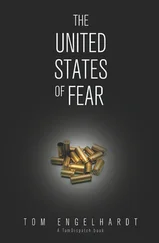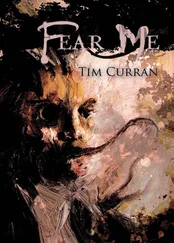“Walk down there,” he said, indicating a dock area on the river, a block and a half away. “I will follow you, and we can talk there. Don’t turn around.”
Half certain that he would take the opportunity to run away while my back was turned, but with little choice except to do as he directed, I began walking in the direction he indicated. He was as skittish as a bird on a low branch. I was of course aware that Negroes were often prey to unscrupulous schemes, and my proposition must have sounded unlikely to him, yet I would have thought my sincerity was evident.
I arrived at more or less the intended place and stood for a few moments looking at the river. Half a block away some dock boys were hefting boxes onto a flatboat. I heard no footsteps, received no signal, and finally I turned around to look up the street. He was nowhere in sight. Once again, he seemed to have vanished into the ether. Well, I thought, I was right about that surmise, at least.
I was about to leave when I saw a movement behind some crates half a block away, and he emerged, looking once more up toward the top of Chestnut Street.
He pointed to a low platform nearby as he approached, and said, “We can sit there.”
“Is all this necessary?” I said, half amused and half annoyed. “Do I seem so threatening?”
He didn’t answer; I saw that he was holding something in his hand, which he now held out to me. It was a set of bones. I took them from him, as he pulled something out of a trouser pocket, with a rustling of paper.
“I hope you don’t mind if I eat,” he said, unwrapping a bun. “Play something for me.”
I remarked to myself that although I was the one with the famous troupe, the accolades, the theater, I had somehow found myself in the position of being auditioned by him.
Anchoring the slightly bent lengths of white bone — about the size and shape of the doctors’ tongue depressor — in my right hand on either side of my middle finger, I began with the necessary abrupt twistings of my wrist to set up the rhythmic pattern of “De Boatman Dance.” The bones’ chattering mimicked the ornamentations and arabesques of a fiddle making its way through the melody. I played the three-part tune through twice as he munched on his bun, watching me and emitting a periodic “Huh” if he heard something worth grunting about. He finished the bun at about the same time as I completed my audition, and he wiped his mouth with evident satisfaction.
“You know,” he said, extending his hand to reclaim the bones, “in the third part you can decorate the long notes this way.” Taking the bones, he demonstrated an effect that with a minimum of apparent effort extracted multiple clacks for each turn of the hand. I watched closely but could not see how he did it. He slowed down to half speed and still I could not make it out. He was watching me, as I watched his hands.
Finished, he replaced the bones in a small pocket sewn onto the side of his banjo’s sack. “What do you want with me?”
I outlined in general terms that which I had in mind, my feeling about all the extraneous elements that were being added to the central part of the minstrel show, which central part was the Negro dimension. Glass harmonica players, operatic pastiches. . As I spoke I got more passionate. I told him about seeing Sweeney, and the other minstrels, the pioneers of blackface. I told him of the exhilaration of hearing the music, playing it, and, above all, the feeling of freedom that had come from blacking up. “When I first heard the minstrels,” I said, “I felt as if I had been freed from a life of oppressive servitude.”
I suppose I conceived that this was all a kind of tribute to him, and his race, yet he was watching me with a face that might have defined irony. I stopped speaking.
“Have I said something wrong?”
With a look half amused and half derisive, he said, “Your eloquence is admirable.”
“Will you come to the theater some time and have a look? You can enter with me, and I can install you in the audience, and afterward perhaps we can work something up. You may have an idea and I may have one. .”
“Do you propose to pay me?” he said.
“I will pay you out of my own pocket if need be.” I watched him register this. “Will you come, then?”
He stood, hefted his banjo in its sack, and said, “I’ll have to see if I’m free.”
“Wait,” I said. “Will you tell me your real name?”
“Henry Sims.” He said this in his Spanish voice, so that his surname sounded like “seems.”
“Where may I find you? Can we discuss this further. .”
“You found me twice,” he said. Then he walked away, leaving me puzzled, and with the distinct feeling that I might never see him again.
I made my way back to Barton’s, where we were to hold an audition for a group of Alpine yodelers. I was disinclined to sit still for this performance, yet it was my responsibility, along with Mulligan, to conduct these auditions. Mulligan and I sat next to one another in the fifth row of the dark cavern of the hall as the troupe trouped onstage in their ludicrous outfits. The women as well as the men wore leggings apparently intended to make them resemble sheep, but which only made them appear ridiculously hirsute. Mulligan found this impossibly humorous, which was not common for him, and he began making remarks to me, sotto voce, as the troupe ran through their audition songs.
“They really ought to shave their legs,” he said.
“Quiet,” I said, sliding deeper into gloom.
“Really, it is a troupe of epicene centaurs,” he said.
“Will you stop.”
“I wonder if they are equally hairy on their arms. We ought to present them completely undressed.”
I let this pass.
“Perhaps we could breed them and shear them for profit.”
Onstage, the group was doing some kind of truncated Morris dance and slipping into an antiphonal falsetto that was beginning to strike me as absurd. Mulligan continued chipping away with his deprecatory epigrams, and the troupe dipped and stomped and yodeled, and I was overcome finally with an attack of giggles which I tried in every way to stifle, unsuccessfully. Hearing my cackling, the troupe stopped in mid-yodel, and Mulligan, who was himself laughing, hollered to them, “You’re hired! Mr. Douglass will talk to you about specifics when you are in your street clothes.” As they filed offstage, accompanied by my helpless laughter, Mulligan said to me, “We can insert them in the middle of the second half. They will be perfect.”
When I had myself under control, I walked backstage in a lightened mood.
For whatever reason, that night’s performance was stellar. We were, needless to say, never less than professional. Still, for the past months we had rarely been more than professional. Yet as any performer will tell you, once in a while something gets loose and, like birds gathered in a tree creating a racket, everyone is subject to the same mysterious visitation of energy. It was certainly so on this night. Our first half was robust if not epochal. After intermission, the Parakeet Impersonator (a German) whom we had added as that week’s specialty was received respectfully, but then we took the stage and “Across the Sea” extended itself under our feet and fingers and we all seemed to levitate six inches off the boards, and I remember looking across at Mulligan and feeling the hair rise on my arms. During the final number, “Clare de Kitchen,” Mulligan rose to his feet and squared off against Powell, and they jumped back and forth across the stage as if they were attached on strings to one another. Finally I rose to my feet as well and circled them, and Eagan — Eagan! — sank from his chair to his knees, playing variations I’d never heard before. Although the house was only half-full, I thought the audience would tear the theater down, and we had to play three encores.
Читать дальше










